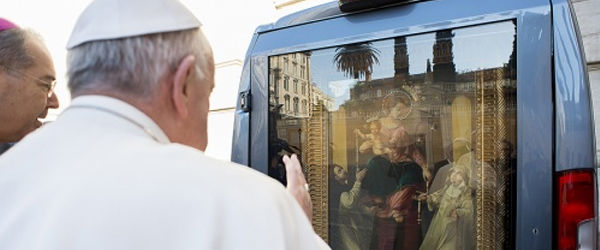Renewed hope was the sentiment of most people attending a Sept. 6 health care assembly, after state officials committed to create a system where public and private insurance providers offer education, affordable insurance and quality care.“The navigators and assisters program must work effectively,” said Yvette Roland, a Transfiguration Church representative, as she looked directly at Diana Dooley, state secretary of health and human services, and state Senator Ed Hernandez, seated on stage during the assembly “Quality Health Care for All in L.A. County,” organized by OneLA, a grassroots organization that promotes affordable and quality education, housing, and healthcare services for the less fortunate. Navigators are non-profit organizations, community clinics, county social services offices and other similar organizations that have a track record of enrolling people in health care programs.“Who the Exchange chooses will have a profound impact in the community,” Roland continued, referring to the California Health Benefit Exchange, a state insurance marketplace mandated by the Affordable Care Act (ACA). Conscious that outreach to the community will be challenging, Robert Williams, a OneLA member at St. Brigid Church, handed Dooley a proposal made by parishioners of how to address the needs and challenges low income families face, such as little or no access to computers, fear of dealing with unscrupulous salespeople, and lack of education.By January, Dooley said, her department will have health plans and people available to help solve problems. But, she admitted, challenges will continue to arise. “We will still confront problems, but working together is important and the trust in the community is essential,” Dooley said.She accepted OneLA’s invitation to facilitate a meeting in November between insurance providers and OneLA representatives to select potential navigators that could be “diverse and reflective of the needs of L.A. County.”OneLA leaders also urged that state government establish Web sites with information that could be easily understood by users, regardless of their expertise or level of education.Dooley said that while health coverage contracts are complex by nature, her office would make sure these would be understandable to everybody, but she encouraged the audience to take responsibility when purchasing the products, having clear expectations based on their own qualifications.“Poorest people that don’t qualify in Medi-Cal will qualify for the exchange,” she said. “The more money they earn, the less subsidy they will have.”Dr. Mitchell Katz, director of Health Services Department of L.A. County, committed to review a proposal made by Claretian Father Richard Estrada, from Our Lady Queen of Angels (La Placita), to launch a mobile enrollment center in three parishes (La Placita, St. Agnes in L.A. and Mary Immaculate in Pacoima) to help educate and enroll the most people possible with assistance from St. John’s Hospital and county employers. “More affordability for small business owners” was also discussed during the meeting. Hernandez said he will re-submit a healthcare bill in December to offer affordable products for the thousands of uninsured.Husband and wife Frank and Gloria Buoso, from St. Paul Church in L.A., welcomed the agreements, and said it offers an opportunity for parishes to organize and educate their membership. Frank was self-employed for several years, until the high premium he was paying for his family of four forced him to work for an employer.“I practically begged him to go back to work for someone else,” said Gloria. “Those premiums were killing us.” For more information about OneLA-IAF, go to www.onela-iaf.org or call (213) 743-0005.{gallery width=100 height=100}gallery/2012/0921/onela/{/gallery}

